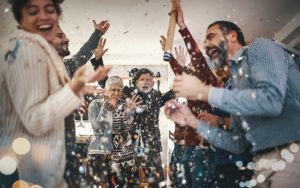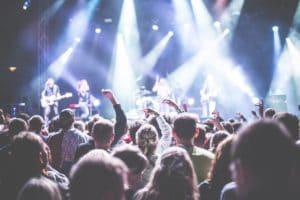We are celebrating three years in Burbank! Will your ear be the 1000th ear to be fitted for a hearing aid?
Dr. Mary Frintner has more than 30 years of experience evaluating and treating hearing loss. She has served hearing impaired patients in the San Fernando Valley, San Gabriel Valley and the Greater Los Angeles communities since 2000.
Three years ago, we opened our office in Burbank and we’ve enjoyed every moment. We are so thankful for the way we’ve been embraced by the community and are proud that we have been able to help so many of you on your journey to better hearing. In only three years, we have helped more than 984 ears! Will yours be the 1000th ear to get a hearing aid?
As a thank you to our community, we are offering:
Special pricing on Oticon OpnTM hearing aids.
Plus receive additional incentives to donate your current hearing aids.
Offer valid for March 2019

While we’re talking about celebrations, we thought we’d leave you with a few tips on how to enjoy the party with those who have hearing loss.
- Keep the music low. While music adds to the party, but if it’s too noisy it can prove distracting to those with hearing loss.
- Include everybody in the conversation. Hearing-impaired guests may act quiet or appear uncomfortable. It’s not that they are antisocial; they may simply be feeling left out. Include them in the conversation as much as possible.
- Face the person when speaking. Many hard of hearing individuals rely on facial cues and/or lipreading in order to communicate. Face your guest when speaking so they can understand your words more easily.
- Speak slowly and clearly. Do not mumble and resist the urge to shout. Stick to simple words and phrases delivered in a normal tone of voice. Make sure to avoid speaking while eating and do not cover your mouth with a napkin or your hands.
- Rephrase rather than repeat. If you’re your friend with hearing loss is having trouble understanding, you’ll be tempted to repeat yourself (and will probably raise your voice to overcompensate). Try rephrasing instead, using a different word that conveys the same meaning. Often, a particular vowel or consonant causes trouble.
- Don’t hold a conversation from far away. Remaining in close proximity when conversing will ensure they understand what you are saying more easily and allows them to see your mouth and facial expressions.

